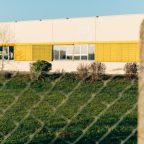
Why Exeter Startups Are Studying Derry's Digital Playbook (And What Cambridge Could Learn Too)
The University City Revolution Nobody Expected
Ten years ago, Derry/Londonderry was better known for its troubled history than its tech scene. Today, this Northern Ireland city of 85,000 has become a digital powerhouse that Exeter's startups, Cambridge's entrepreneurs, and university cities across the UK are desperately trying to understand. With 40% of its population under 25, a thriving university, and digital businesses growing at 300% annually, Derry cracked a code that Exeter needs: how to transform student talent into lasting economic success whilst keeping costs manageable and quality of life exceptional.
The parallels between Exeter and Derry are striking. Both have prestigious universities pumping out talented graduates. Both sit outside major metropolitan areas. Both struggle with graduate retention as young talent flows to London or Dublin. Yet Derry has reversed this brain drain through digital initiatives that Exeter is now actively studying at Profile Tree. The secret? A combination of strategic digital training, innovative marketing approaches, and community-driven growth that creates opportunities graduates actually want to stay for.
Exeter's startup ecosystem—from the Science Park to the city centre's growing tech quarter—stands at a crucial juncture. With London becoming prohibitively expensive and remote work normalising, Exeter could become the Southwest's digital capital. But success requires learning from places that've already made this transformation. Derry's playbook, refined through years of experimentation and now delivering remarkable results, provides the blueprint Exeter needs.
https://www.youtube.com/watch?v=r39qmU0qv5o
The Best Digital Training Strategies From County Antrim's Success Stories
Whilst Derry grabs headlines, the quieter revolution happening across County Antrim provides even more valuable lessons for Exeter. Through systematic digital training programmes, Antrim has transformed traditional businesses into digital leaders without losing their local character. The county's approach—practical, affordable, and community-driven—offers a model perfectly suited to Exeter's mix of students, startups, and established businesses.
The Antrim model recognises a truth Exeter must embrace: sustainable digital growth requires widespread digital literacy, not just a few tech unicorns. When the local baker understands Instagram marketing, the solicitor can manage Google Ads, and the charity shop runs email campaigns, the entire economy strengthens. Antrim achieved this through training programmes that feel more like community gatherings than corporate workshops.
Best Training Innovations Exeter Should Adopt:
The Student-Business Partnership Programme: Antrim businesses struggling with digital transformation partner with university students needing real-world experience. Students provide fresh perspectives and digital natives' instincts. Businesses offer mentorship and potential employment. One Ballyclare manufacturer partnered with computer science students to automate inventory management, saving £50,000 annually whilst providing three graduate jobs. Exeter University's 30,000 students represent similar untapped potential for local businesses.
Digital Skills Exchanges: Instead of expensive consultants, Antrim businesses teach each other. The estate agent who mastered virtual tours trains the boutique owner. The restaurant excelling at social media helps the bookshop. These peer-learning sessions, held monthly in community spaces, create support networks that outlast any training programme. Exeter's Guildhall or Central Library could host similar exchanges.
The Generational Bridge Programme: Antrim solved a problem Exeter faces: older business owners intimidated by digital change. They pair experienced entrepreneurs with young digital mentors in respectful partnerships. The elder provides business wisdom; the youngster offers technical expertise. A Carrickfergus family business trading for 60 years now sells globally online thanks to this approach. Exeter's established High Street businesses could transform similarly.
Content Marketing Lessons From Armagh That Cambridge Wishes It Knew
County Armagh—rural, agricultural, seemingly unlikely to produce digital innovation—has mastered something that even Cambridge's tech cluster struggles with: authentic content marketing that builds genuine community whilst driving commercial success. Their approach, refined through necessity in a small market, provides lessons directly applicable to Exeter's diverse business ecosystem.
The Armagh breakthrough came from recognising that small places have stories big cities lack. Every business has heritage. Every product has provenance. Every service connects to the community. Whilst Cambridge startups pitch venture capitalists with slide decks, Armagh businesses build customer loyalty through storytelling that money can't buy.
https://www.youtube.com/watch?v=ybFBXoxvBp0
Best Content Strategies for University Cities:
The Academic Authority Approach: Armagh businesses leverage local expertise to build content authority. A Portadown food company partners with nutritionists to create educational content. A Lurgan engineering firm collaborates with professors on technical articles. This academic backing provides credibility that pure marketing never could. Exeter businesses sitting next to a world-class university have even greater opportunities for such partnerships.
Student-Generated Content Campaigns: Armagh discovered that students create the most engaging content for student audiences. Rather than middle-aged marketers trying to appear young, they empower students to tell authentic stories. A Markethill café's student takeover increased engagement 400%. Exeter businesses targeting the massive student population could implement identical strategies.
The Heritage-Innovation Blend: Successful Armagh businesses don't choose between tradition and innovation—they blend both. A seventh-generation apple orchard uses drone footage to show harvests. A Victorian-era mill uses virtual reality to give tours. This combination of old and new resonates powerfully. Exeter's Roman walls meeting modern startups provides similar storytelling opportunities.
Collaborative Content Networks: Armagh businesses discovered that creating content together multiplies impact. Five businesses collaborating reach 25 times the audience of five businesses working separately. They share production costs, cross-promote naturally, and create richer stories. Exeter's Princesshay shops or Cathedral Quarter businesses could form similar content collectives.
Derry's Digital Marketing Revolution: From Troubled Past to Tech Future
Derry's transformation from conflict zone to digital hub didn't happen through conventional digital marketing. It required reimagining how a city presents itself digitally, turning perceived weaknesses into strengths, and building authentic narratives that attracted talent, investment, and customers. Exeter, whilst facing different challenges, can apply these same principles to accelerate its digital growth.
The Derry method starts with brutal honesty about position and perception. Instead of competing with Dublin or Belfast on their terms, Derry created its own category: the affordable, creative, collaborative alternative. This positioning, consistently communicated across all digital channels, attracted businesses and talent seeking something different. Exeter could similarly position itself as the lifestyle-first alternative to London's rat race.
Best Digital Marketing Tactics From Derry's Playbook:
The Talent Attraction Campaign: Derry's biggest challenge was keeping graduates. Their solution: a coordinated digital campaign showing young professionals thriving locally. Real stories of entrepreneurs, creatives, and technologists choosing Derry over Dublin. Cost comparisons showing how far salaries stretch. Lifestyle content highlighting surf breaks, music venues, and community. Exeter faces identical graduate retention challenges and could implement similar campaigns.
Event-Driven Digital Strategies: Derry leveraged events to drive year-round digital engagement. The Halloween festival, jazz festival, and maritime festival become content tentpoles. Businesses create related content months in advance, building anticipation. During events, real-time social media creates FOMO for next year. Exeter's festivals, food markets, and university events provide similar opportunities.
The Diaspora Engagement Model: Derry digitally engages its diaspora—people who left but maintain emotional connections. Email newsletters share city updates. Social media groups connect expats. Digital events allow remote participation. This network becomes ambassadors and potential returnees. Exeter's global alumni network represents similar untapped potential.
Social Selling: The Secret Weapon University Cities Haven't Discovered
The most powerful digital strategy transforming Northern Ireland's university cities isn't advertising or SEO—it's social selling, the art of building relationships through social media that naturally evolve into business opportunities. This approach, perfectly suited to university cities' relationship-rich environments, provides Exeter businesses with a blueprint for sustainable growth.
Social selling recognises that people buy from people, especially in smaller cities where everyone knows everyone. Rather than broadcasting sales messages, successful practitioners build genuine relationships, provide value consistently, and allow commercial opportunities to emerge naturally. This patience-requiring approach delivers higher-value, longer-lasting customer relationships than any traditional marketing & for more info.
Best Social Selling Strategies for Exeter:
The LinkedIn Campus Strategy: University cities have unusual LinkedIn dynamics—thousands of students becoming professionals, academics with global networks, and businesses seeking graduate talent. Derry businesses mastered LinkedIn engagement with this audience. Regular valuable content, genuine engagement with university posts, and strategic connection building. One Derry tech firm hired 15 graduates purely through LinkedIn relationship building. Exeter's massive university presence makes this even more powerful.
The Instagram Lifestyle Approach: Students and young professionals choose cities for lifestyle, not just jobs. Successful social selling showcases lifestyle authentically. Morning coffee spots. Evening running routes. Weekend adventures. This content builds emotional connections with potential customers and employees. A Derry marketing agency grew from 2 to 20 staff by showing, not telling, why Derry beats Dublin for quality of life.
The Academic Influence Network: Professors, researchers, and university staff represent powerful but underutilised social selling opportunities. They have credibility, networks, and influence. Businesses providing genuine value to academics—research support, student opportunities, or expertise—build relationships that generate unexpected returns. One Armagh company's relationship with a single professor led to three international contracts worth £500,000.
Exeter's Digital Destiny: Leading the Southwest's Transformation
The evidence from Derry, Antrim, and Armagh proves that university cities don't need London budgets or Silicon Valley culture to thrive digitally. They need strategies that leverage their unique advantages: educated populations, innovative cultures, and collaborative communities. Exeter possesses all these ingredients plus advantages Northern Ireland lacks: better weather, proximity to London, and established prosperity.
The next 18 months will determine whether Exeter becomes the Southwest's digital capital or watches Bristol and Bath claim that crown. The strategies exist. The talent is here. The university provides continuous innovation. The only question is whether Exeter's business community will embrace these proven approaches or continue hoping traditional methods will somehow deliver digital results.
Cambridge might have the reputation, but Cambridge also has the problems: astronomical costs, impossible housing, and cutthroat competition. Exeter can learn from both Cambridge's successes and failures whilst implementing Derry's more sustainable model. The result could be something unprecedented: a university city that combines academic excellence with digital innovation whilst maintaining livability.
The playbook is written. The examples are proven. Exeter's digital future awaits those brave enough to seize it.

















